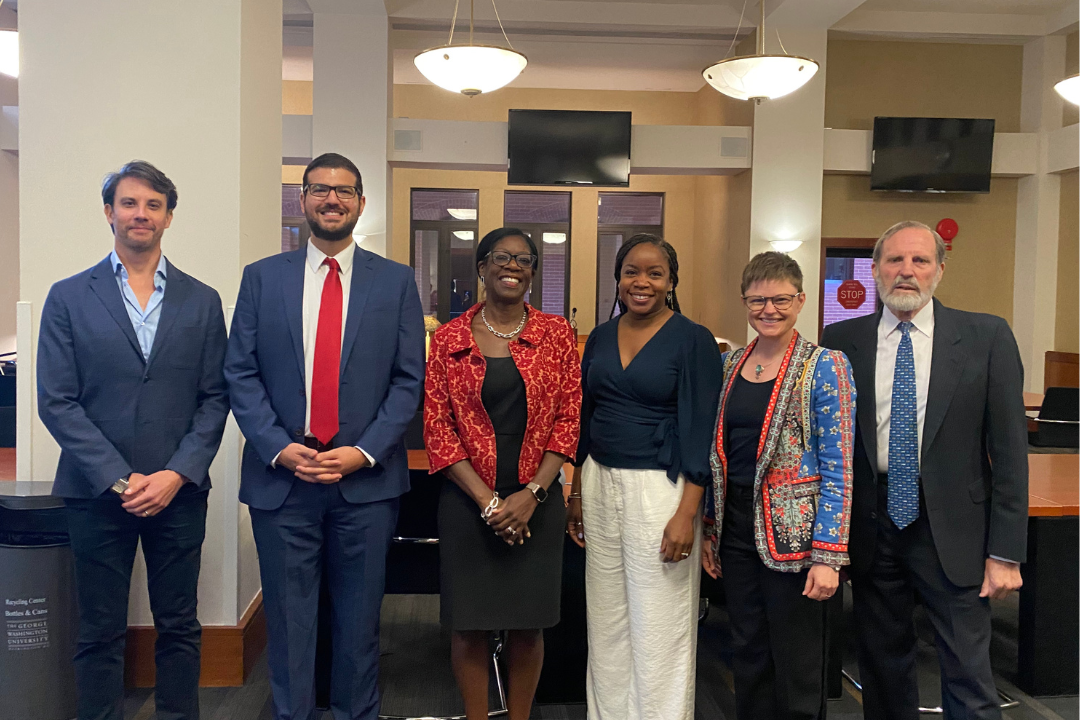An expert panel of GW Law faculty and legal reporters met up on September 20, to preview some of the key cases and issues to be argued this fall at the Supreme Court. Held in the Jacob Burns Moot Court Room, GW Law faculty Alan B. Morrison and Emily Hammond were joined by Reuters Supreme Court Correspondent Andrew Chung, Boston Globe columnist Kimberly Atkins Stohr, and Supreme Court correspondent for Slate, Mark Joseph Stern who also served as moderator.
The first case to be argued for the term, Sackett v. EPA, offers enormous implications for the Environmental Protection Agency’s ability to regulate wetlands and similar waters under the Clean Water Act.
The panel examined two cases that have the power to shift election outcomes. Merrill v. Milligan, reviews whether Alabama’s 2021 redistricting plan violates the Voting Rights Act, and Moore v. Harper, which will be a test whether the Court accepts the proposed "independent state legislature theory" which would give state legislatures final authority on all rules governing federal elections.
Race-conscious admissions – also affirmative action – is at the center of two cases. The plaintiff’s in Students for Fair Admissions Inc. v. President and Fellows of Harvard College, want the Court to find that any consideration of a person’s race in admission is unconstitutional.
The right to discriminate against gay marriage is at issue in another case previewed by the panel, 303 Creative LLC v. Elenis, involving the owner of a graphic design firm in Colorado who wants to design wedding websites but to exclude same-sex weddings, despite Colorado law barring LGTBQ+ discrimination. The plaintiff argues this violates her First Amendment rights to free speech.
In addition, the panel discussed the potential outcomes in National Pork Producers Council v. Ross which looks at whether California can impose conditions on how pigs are raised in other states, and in United States v. Texas; about the state’s standing to challenge the federal government's enforcement of immigration law.
The full video of the panel can be viewed here.


